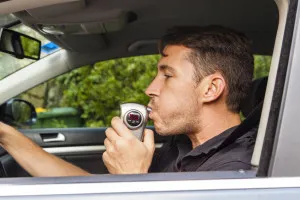
If you have an ignition interlock device installed in your vehicle, chances are you already know that it will prevent you from turning on the engine if the car breathalyzer detects a blood alcohol content above a certain prescribed level. Usually, this level is set much lower than the legal driving limit of 0.08, often around 0.02.
These low levels are incredibly important for driver safety and preventing recurring drunk driving incidents, and they’re shown to be effective in reducing dangerous activity on the road. However, this doesn’t mean that those low numbers are fail proof.
Occasionally, drivers may find that they fail the breathalyzer test in the morning or throughout the day — even if they haven’t been drinking. There are a few possible reasons why this might be the case and simple steps to avoid any inconvenience this might cause.
- Mouthwash: Some antiseptic mouthwashes contain alcohol. If it’s left lingering in your mouth, the breathalyzer could pick up on that alcohol content and mistake it for a BAC. Avoid using mouthwashes directly before entering your car, or simply wait a few minutes and try again.
- Fermenting foods: Quick-acting carbohydrates, such as fruit juices and white breads, can mix with your stomach acid and produce a kind of fermentation in your gut. This, too, might register in your breath and cause the interlock device to register a high BAC level. Rinse out your mouth and drink plenty of water with meals to avoid this problem.
- Residual alcohol: If it’s early in the morning and you were out drinking the night before, your BAC level could still be over the car breathalyzer limit. It’s important to give your body the full amount of time it needs to recover before operating a vehicle — so go sleep it off.
When you fail a breathalyzer test and your car won’t start, remember not to panic. You can always try again in a few minutes, but repeated failures may lock out your ignition completely. Stay aware and stay safe by paying attention to your body and your breathalyzer.
